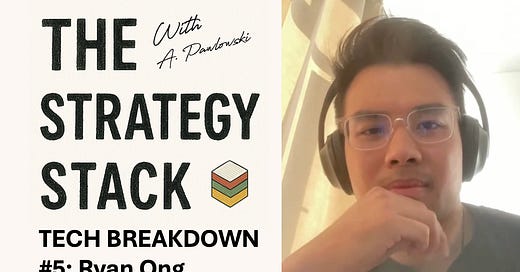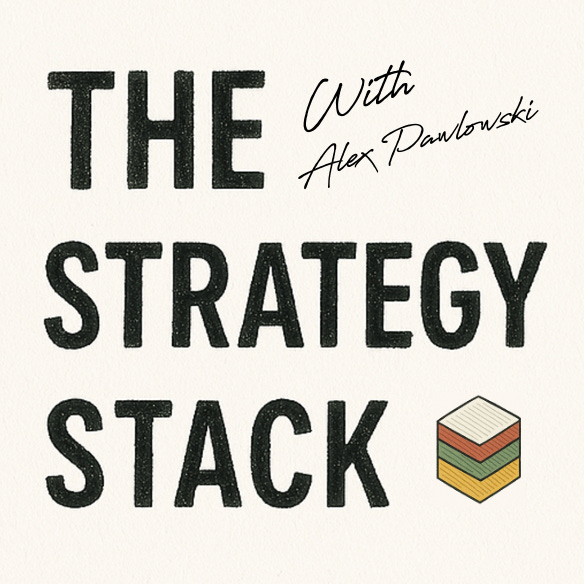Strategy Stack: Tech Breakdown
👥 Featuring:
Guest: Ryan – AI engineer, PhD in Knowledge Graphs & LLMs, founder of Weekend AI and Substack writer.
Host: Alex (The Strategy Stack)
Key Discussion Topics
Enterprise AI Trends
Ryan shares consulting experience with UK-based clients deploying GenAI for internal tools and chatbots.
Highlights tension between software engineering speed and lack of innovation in traditional orgs.
Challenge of evaluating LLM performance in dynamic, non-deterministic workflows.
Tooling & Automation
Multi-agent systems and RAG (retrieval augmented generation) in production.
Launch of Us, a Substack-based chatbot using RAG to answer questions from newsletter content.
Importance of "human in the loop" design to keep AI outputs reliable and verifiable.
Tech Adoption & Global Shifts
Comparison of GenAI adoption: India/China (high), US/Europe (relatively low).
Ryan discusses relocating to UAE or Singapore for better tech ecosystem support.
UK seen as increasingly less innovation-friendly.
AI Productization & Platform Gating
Discussion on how AI agents may compress traditional business workflows.
Questions around platform securitization and creator compensation in a world of AI scraping.
Brave browser and Model Context Protocol (MCP) as emerging solutions for access control.
Future of AI Interaction
Excitement over Google’s VEO-3 (video + audio generation) and real-time language translation.
Debate around multi-modality, sensory inputs, and brain-AI interfacing (Neuralink, vision, etc.).
Limitations of today’s models and the need for spatial or context-aware AI co-pilots.
💡 Takeaways
From Alex:
Fuzziness is inherent to generative AI, but human-in-the-loop workflows and tighter platform access controls will define the next era.
AI needs world understanding before making judgments—text is not enough.
Sovereignty, privacy, and compensation will shape the evolution of AI agents and data-sharing platforms.
From Ryan:
Users don’t care about backend complexity, they care about fast, intuitive value delivery—even from "naive" systems.
Simple tech can outperform advanced systems, if user outcomes are prioritized.
Adoption depends on role and region: AI as Google replacement vs. life advisor vs. operating system.















Share this post